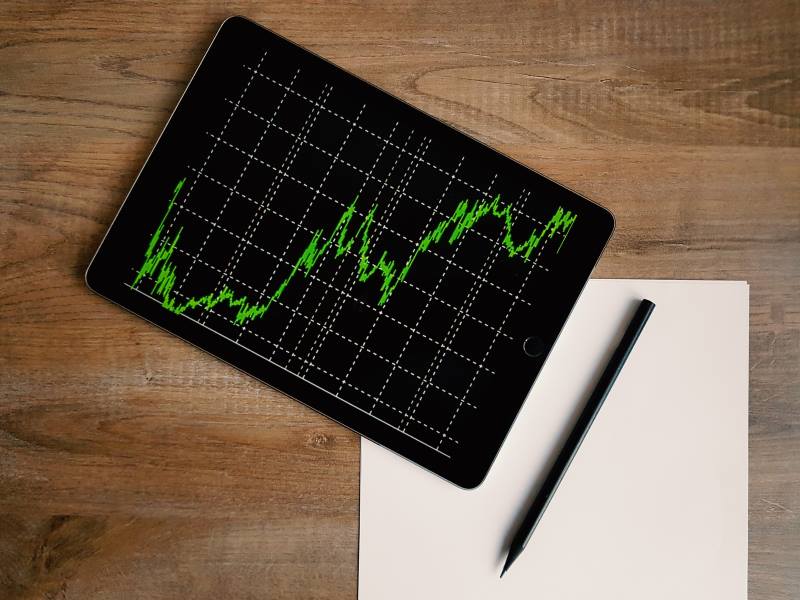Day trading changed the world many years ago simultaneously with the introduction of securities, assets, equities, futures, and the ending of the gold standard and its replacement with the currency convertibility system.
However, it was the technological revolution the one who introduced money investments to the masses. With the rise of new technologies in the financial world, everybody started to see trading as something familiar. Suddenly, main street people began to think about how to become a day trader.
Why? because day trading is a very lucrative business if done right. With day trading, people have become millionaires, and others have started a decent side income.
Well, Today we are going to talk about Forex day trading and how to become a day trader. Fasten your seatbelts; the action is here.

What is a day trading
As day trading is the action of exchanging assets, securities, or other financial assets within the same day; day traders are people who open both short and long positions to take advantage of intra-day market price volatility.
In the United States, the regulatory body states that a day trader is a person who opens and closes four or more trades within five days. “A day trader must maintain a minimum equity of $25,000 on any day that the customer day trades,” Finra says.
However, every country is different, but most of the formal regulatory bodies have similar rules and also have the equivalent legal and taxation framework. One common thing is that day trading and short term trades pay more taxes than long term positions.
There are some ways to avoid those restrictions. You can separate trades and never do four or more trades in five days. You can also keep your positions overnight, or you can trade only with your money, not margin.
So, as a summary, a day trader is someone who places intra-day positions and he closes it in the same session. He often puts many positions, like 10 or 20 trades per day and is an ultra-short-term investor.
Who is a professional day trader
Despite there is not a legal difference between being a professional trader or somebody who trades on their own, the industry calls as professionals people who have studied financials and have gotten certifications and licenses.
Both people are professional traders, but the market acknowledges as professional the trader who works for a firm. The other is commonly known as an individual trader.
If you want to become a professional trader in the eye of the industry, you should go to the university and earn a financial degree, then apply and get your licenses as a forex broker. Finally, you should look for a job in a brokerage.
On the other hand, individual traders usually use their own money or familiar and friends capital to make traders. However, similar tax conditions apply for both when filing tax returns or legal papers.
Now, Let’s move on and talk about what makes an individual a professional day trader that works with his own capital with success and makes that his full-time job.
What makes someone a professional and reliable day trader is how he assumes trading and the seriousness he takes to trade. How he manages risks, stays calm, knows strategies, and masters charts.
A professional trader never takes shortcuts but takes the time he needs to understand Forex trading before opening a position. Of course, he loses money, but he knows how to cut losses, lets wins run, and when to take the exit door when the situation becomes dangerous.
Basics of Forex day trading
As the technological revolution came to our lives, day trading became available to regular people with small savings but a lot of energy and hopes for success.
New platforms and developed strategies are now allowing people to trade seriously and to make consistent profits. However, what do you need to know? Here the basics.
Popular markets to day trading
As day trading is feed by volatility and the opportunities that it creates. The more active the market is, the better it is for a day trader. That being said, investors will find more opportunities in markets such as Forex, cryptocurrencies, CDFs, equities, and even futures.
The smaller the timeframe is, also the best conditions a day trader will find. Remember that in proportion, the movements in a one-minute chart are more violent than an hourly or daily picture.
Finally, Forex day traders may want to try the GBP/JPY, EUR/USD, USD/JPY, and GBP/USD pairs to find volatility.
Risk and money management
Risk management is everything in the investing market, especially in the day trading style where a trader is risking a tremendous amount of money every session. Remember that more important than winning is to survive markets. So, you need to master your risk management if you want to succeed as a full-time trader.
The first thing you should understand when opening a position is to maintain strict levels of risk exposition, stop losses, and profit-taking.
Keep in mind that the SEC recommends people almost to avoid day trading as the regulator considers it as “an extremely stressful and expensive full-time job” as investors depend heavily on margin and borrowed money.
Finally, allow you to lose money and accept bad trades, don’t fall in love with negative positions.
Cost of day trading
Everything sums in day trading, but also all is a cost when it comes to talking about brokers, spreads, and taxes. Maximize your wins with low-cost platforms, freemium features, and available technical indicators and fundamental information outlets.
Remember FIFO rules, small spreads, and low latency as features to consider when opening an account with a new broker. Every pip counts.
How to become a day trader, a successful one
If you are still willing to take the risk and try day trading, excellent decision, but you should understand that a buck made as a Forex day trader is a hard buck done. So, Do you have what it takes?
The first thing to understand if you want to become a successful day trader is to know how to manage risk and to keep alive. Of course, day trading could be a profitable business, but it is a risky one.
Secondly, you should be willing to study every day about what is moving the market, take your strategy, and test variants. Remember that you are entering a market that evolves every single day.
Another basic rule is to cut your losses and let your wins run. How can you do that? Study, study, and keep studying. Train yourself, trade consistently at the same hours every day, and cash in your profits while the market is funny enough to let you take it.








Leave a Reply